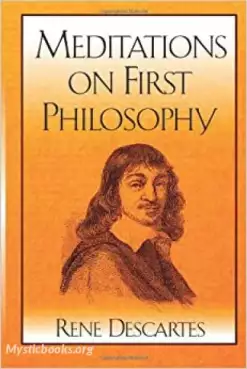
The Prince
'The Prince' Summary
Each part of The Prince has been extensively commented on over centuries. The work has a recognizable structure, for the most part indicated by the author himself. It can be summarized as:
Letter to Lorenzo de' Medici, Duke of Urbino
Machiavelli prefaces his work with an introductory letter to Lorenzo de' Medici, Duke of Urbino, the recipient of his work.
The subject matter: New Princedoms (Chapters 1 and 2)
The Prince starts by describing the subject matter it will handle. In the first sentence, Machiavelli uses the word "state" (Italian stato, which could also mean "status") to cover, in neutral terms, "all forms of organization of supreme political power, whether republican or princely." The way in which the word "state" came to acquire this modern type of meaning during the Renaissance has been the subject of much academic debate, with this sentence and similar ones in the works of Machiavelli being considered particularly important.
Machiavelli says that The Prince would be about princedoms, mentioning that he has written about republics elsewhere (a reference to the Discourses on Livy), but in fact, he mixes discussion of republics into this work in many places, effectively treating republics as a type of princedom, also, and one with many strengths. More importantly, and less traditionally, he distinguishes new princedoms from hereditary established princedoms. He deals with hereditary princedoms quickly in Chapter 2, saying that they are much easier to rule. For such a prince, "unless extraordinary vices cause him to be hated, it is reasonable to expect that his subjects will be naturally well disposed towards him". Gilbert (1938:19–23), comparing this claim to traditional presentations of advice for princes, wrote that the novelty in chapters 1 and 2 is the "deliberate purpose of dealing with a new ruler who will need to establish himself in defiance of custom". Normally, these types of works were addressed only to hereditary princes. He thinks Machiavelli may have been influenced by Tacitus as well as his own experience, but finds no clear predecessor to substantiate this claim.
This categorization of regime types is also "un-Aristotelian" and apparently simpler than the traditional one found for example in Aristotle's Politics, which divides regimes into those ruled by a single monarch, an oligarchy, or by the people, in a democracy. Machiavelli also ignores the classical distinctions between the good and corrupt forms, for example between monarchy and tyranny.
Xenophon, though, made exactly the same distinction between types of rulers in the beginning of his Education of Cyrus, where he says that, concerning the knowledge of how to rule human beings, Cyrus the Great, his exemplary prince, was very different "from all other kings, both those who have inherited their thrones from their fathers and those who have gained their crowns by their own efforts".
Machiavelli divides the subject of new states into two types, "mixed" cases and purely new states.
"Mixed" princedoms (Chapters 3–5)
New princedoms are either totally new, or they are "mixed", meaning that they are new parts of an older state, already belonging to that prince.
New conquests added to older states (Chapter 3)
Machiavelli generalizes that there were several virtuous Roman ways to hold a newly acquired province, using a republic as an example of how new princes can act:
to install one's princedom in the new acquisition, or to install colonies of one's people there, which is better.
to indulge the lesser powers of the area without increasing their power.
to put down the powerful people.
not to allow a foreign power to gain reputation.
More generally, Machiavelli emphasizes that one should have regard not only for present problems, but also for the future ones. One should not "enjoy the benefit of time", but rather the benefit of one's virtue and prudence, because time can bring evil, as well as good.
Machiavelli notes in this chapter on the "natural and ordinary desire to acquire" and as such, those who act on this desire can be "praised or blamed" depending on the success of their acquisitions. He then goes into detail about how the King of France failed in his conquest of Italy, even saying how he could have succeeded. Machiavelli views injuring enemies as a necessity, stating, "if an injury is to be done to a man, it should be so severe that the prince is not in fear of revenge".
Book Details
Language
EnglishOriginal Language
ItalianPublished In
1532Authors

Niccolò Machiavelli
Italy
Niccolò di Bernardo dei Machiavelli was an Italian Renaissance diplomat, philosopher and writer, best known for The Prince (Il Principe), written in 1513. He has often been called the fat...
Books by Niccolò MachiavelliDownload eBooks
Listen/Download Audiobook
Related books

Opticks by Isaac Newton
Opticks: or, A Treatise of the Reflexions, Refractions, Inflexions and Colours of Light is a book by English natural philosopher Isaac Newton that was...

Pond And Stream by Arthur Ransome
Immerse yourself in the wonders of aquatic ecosystems, from the delicate dance of water beetles to the mesmerizing patterns of sunlight filtering thro...

A Treatise Concerning the Principles of Human Knowledge by George Berkeley
Does the world exist outside of your mind? In his groundbreaking philosophical work, A Treatise Concerning the Principles of Human Knowledge, George...

A Theologico-Political Treatise by Benedict de Spinoza
Written by the Dutch philosopher Benedictus Spinoza, the Tractatus Theologico-Politicus (TTP) or Theologico-Political Treatise was one of the most con...

Maria Theresa by James Franck Bright
This book, written by the Oxford historian James Franck Bright, offers a detailed look at the early reign of Maria Theresa, Queen of Austria and Holy...

Meditations on First Philosophy by René Descartes
Meditations on First Philosophy, in which the existence of God and the immortality of the soul are demonstrated is a philosophical treatise by René De...

Cardinal Wolsey by Mandell Creighton
This book delves into the life and legacy of Cardinal Thomas Wolsey, a prominent figure during the reign of King Henry VIII. Creighton challenges the...

Leviathan, or The Matter, Forme and Power of a Common Wealth Ecclesiasticall and Civil by Thomas Hobbes
Leviathan or The Matter, Forme and Power of a Commonwealth Ecclesiasticall and Civil, commonly referred to as Leviathan, is a book written by Thomas H...

Life of Viscount Palmerston by Lloyd Charles Sanders
This biography offers a comprehensive account of the life and career of Henry John Temple, Viscount Palmerston, a prominent figure in British politics...

History of the Suez Canal by Ferdinand de Lesseps
This book is a firsthand account of the construction of the Suez Canal, presented as a lecture delivered by Ferdinand de Lesseps, the project's archit...
Reviews for The Prince
No reviews posted or approved, yet...